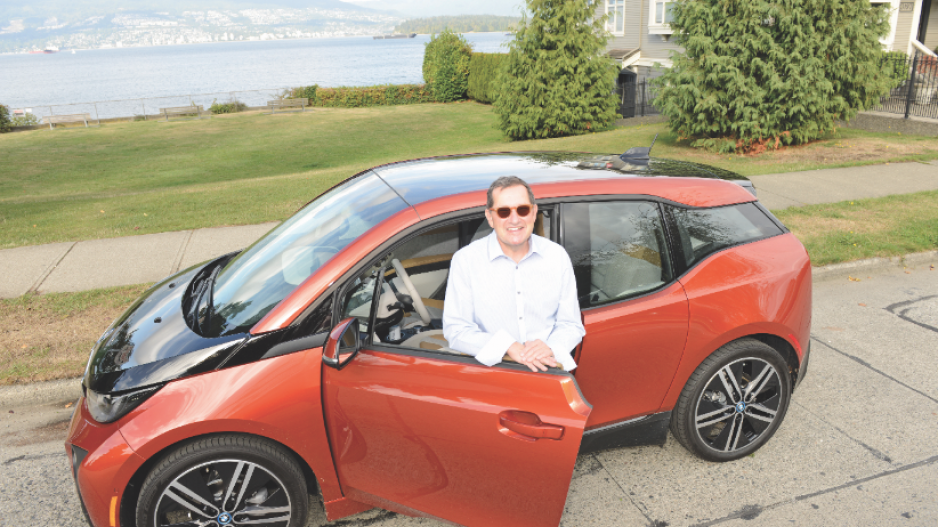Auto dealers and electric car advocates are criticizing the B.C. government for being the first jurisdiction in North America to stop providing a rebate to encourage drivers to buy battery-powered vehicles.
The B.C. government was one of the first to offer such an incentive when it initiated its $5,000 rebate program in 2011. Ontario, Quebec and the U.S. government adopted similar initiatives.
B.C. electric car sales, however, have dropped significantly since the end of March, when the province stopped offering buyers a rebate, New Car Dealers Association of BC CEO Blair Qualey told Business in Vancouver.
This despite electric car maker Tesla opening its first B.C. store, on Robson Street, in May and BMW launching its first electric car, the $45,000 i3, the same month.
With lower-priced cars available, such as the $33,000 Nissan Leaf, and with BMW set to launch its $145,000 i8 sports car next month and Tesla starting to roll out a series of roadside charging stations across B.C., advocates are urging the province to return to offering incentives to help foster the fledgling industry.
“There’s a huge discrepancy between today, when you get no subsidy, and before the end of March, when, if you saw the deadline approaching, you could get $5,000,” said Brian Jessel BMW principal Brian Jessel. “They should have spread the subsidy across more vehicles.”
The B.C. government provided 950 subsidies of $5,000 each to electric car buyers, according to its Ministry of Environment.
That’s far too few for Jessel.
“It would be great to think that having 1,000 electric cars sold in B.C. means something, but the critical mass is more – maybe 5,000 cars,” he said.
Dealers estimate that since March more than 100 electric vehicles have been sold in B.C. although exact sales are no longer being tallied.
Victoria’s now-defunct $14.3 million Clean Energy Vehicle Program also funded education initiatives and rebates for 306 residential charging stations, 550 so-called Level 2 charging stations and nine “fast-charging” stations across B.C.
“There are no plans to resume offering financial incentives at this time [for car buyers or charging stations],” the Ministry of Environment told BIV in an email.
That disappoints electric car advocate and Tesla owner Michael Geller, who bought his vehicle for more than $100,000 a few days before the March 31 deadline to qualify for a $5,000 subsidy.
“An incentive is probably required given the surprisingly small number of electric cars that have sold to date,” Geller said.
What’s holding back an explosion in electric car sales now is a lack of charging stations, Geller said. This despite Tesla installing a six-stall charging station near Squamish in July and Revelstoke city council in September approving Tesla’s plan to install a four-stall charging station in that city. Other Tesla charging stations are slated for Hope, Kamloops, Golden and Banff.
“As we get more charging stations, both around the city and along highways, that will help overcome the anxiety that many potential purchasers have,” Geller said.
The biggest challenge in Vancouver to increasing electric car sales is a lack of electrical outlets in existing condominium parkades, he added.
Developers have had to provide electrical outlets next to at least 20% of the parking spots in residential buildings in Vancouver since 2011. The City of Vancouver has also, since 2011, required developers to build residential parkades that are capable in the future of being easily converted so all cars can be plugged in.
Condominium Home Owners Association president Tony Gioventu advises strata council members to read a guide that his organization drafted to address complexities involved when upgrading parking garages to include electrical outlets.
“Key questions to consider are: Who’s going to pay for the charging station? Who has access to the station? Who’s going to pay for ongoing maintenance of the station? Will it be all owners or just the users?” Gioventu said. “We’ve had members who have installed charging stations successfully but it has usually not been cost-effective unless there’s been a government grant available.”




